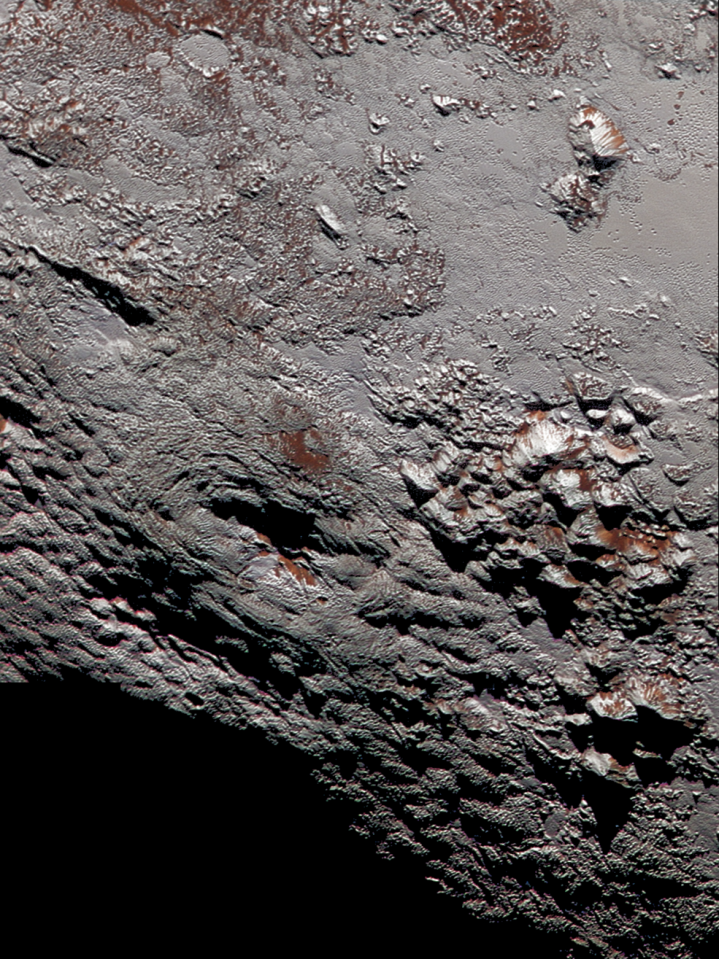
Pluto, the dwarf world in our solar system has recently been removed from the planet status to a dwarf planet, and many experts believe that this space body is too severe to harbor life in deep space. However, a new research conducted by NASA has revealed that Pluto has an enormous underground ocean, and sometimes, it may be sheltering alien life.
Steven Vance, an astrobiologist at NASA has revealed that the ocean in Pluto might be loaded with various elements like ethyl alcohol, methanol, hydrocarbons like methane and ethane, and various other complicated particles made up of carbon, nitrogen, hydrogen, and oxygen.
Many experts believe that the presence of these elements in the underground ocean of Pluto may act as nourishing elements to enhance alien life in the cold world.
Now, a new research report published in the journal Nature reveals that ammonia may be present in abundance in Charon, the biggest moon of Pluto.
Willian McKinnon, the lead author of this research indicated that just like Charon, Pluto may also have an abundant amount of ammonia. According to the research, these conditions in Pluto may not be suitable to living forms including bacteria which we see on earth. However, McKinnon suggests that the conditions in Pluto might have harbored some brand new life forms.
"You do not have space for bacteria on Pluto, much less for fish or other life as we understand it here in the world. But, similar to the methane seas on Titan, Saturn's primary moon, this research study raises the concern of whether brand-new life types might exist in these cold, unique liquids," said McKinnon, Daily Enterpriser reports.
The researcher made it clear that the life forms which may be present in Pluto may be sometimes pre-cellular.
"Life can endure lots of things. It can endure a great deal of salt, severe cold, severe heat, and so on. However, I do not believe it can endure such a big quantity of ammonia. If we were to think of life in an ocean totally covered with a layer of ice, the very best we might wish for would be a type of extremely primitive life, possibly even pre-cellular," added McKinnon.








